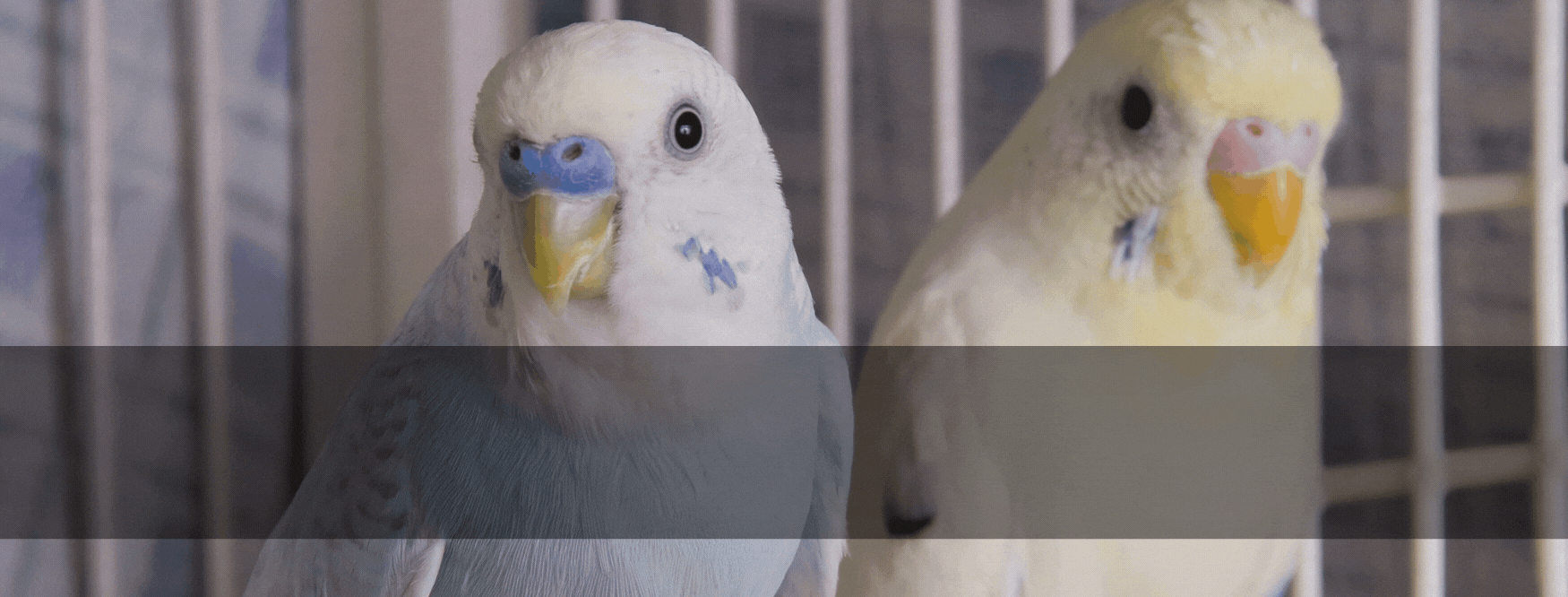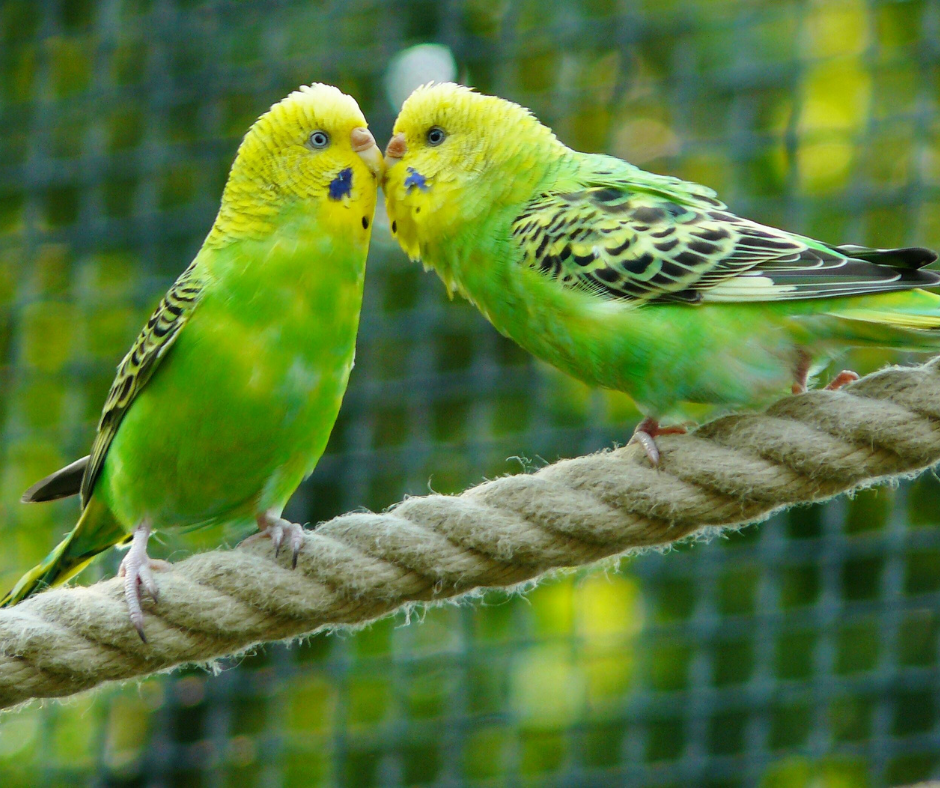Bird Training: When Things Go Wrong
Written by Allison Parks, BS
My flock and I have been together for a little over a month, so socialization is the most I’ve done with these birds. As rescues between the ages of 4 years and 4 months, their background is completely unknown. My flock loves millet sprays, so it is my treat of choice when socializing and clicker training. Hades, my albino budgie, is possibly my bravest boy. Too brave, in fact. During a session, he got so brave that he flew out the door of his cage and into the training room. However, Hades has probably never flown outside of a cage his entire life, so this experience for him was extremely scary.
It may seem strange since he lives in the room all day, but from his perspective, flying out made everything seem like he was in a whole new area. Prey animals fear pretty much all new things, which is why everything has to be done at a much slower pace than with a pet like a dog or cat. I eventually got him back in the cage when he accidentally landed on my hand and bit down on me. He was terrified, and I was devastated. All that work to make Hades excited to see me walk over to the cage, gone.
For a few days, I didn’t want to train in fear of further pushing my birds back. You will probably feel this way when your bird has a freak out during a session. You will have setbacks, but trust me when I say, keep going. Now, I don’t mean right after the setback. If your bird has experienced large amounts of stress such as escaping, don’t immediately try again. Think of your bird as having a bubble around it. At this point, you’ve popped that bubble, and you need to wait for things to settle down.
I didn’t need to wait the three days I did to get back into it. Once I did get back into my socialization sessions with my flock, Hades and the others warmed up quickly. In fact, I got even better results than I was getting before Hades flew out. This may or may not be the case for you as every bird is different. The last thing you want to do is give up on your bird. Just take a breath, try not to be a drama queen about it like I was, and continue. You may be rewarded with a behavior you didn’t expect to get, or you’ll find your bird warms up much faster than you originally anticipated.



